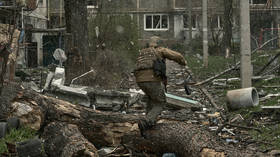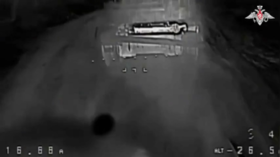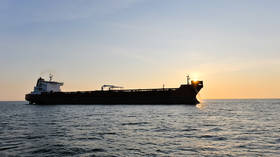Germans told they’re using too much gas

German households and businesses failed to save enough natural gas in the second half of last month, the Federal Network Agency (BNetzA) has warned.
Agency president Klaus Mueller tweeted on Friday that consumers only saved 8.6% in the last week of January, compared to average levels between 2018 and 2021, and 14% when taking colder temperatures into account.
The regulator previously said Germany needs to slash gas consumption by at least 20% to help offset the loss of supplies from Russia.
The German Economy Ministry stated last month that Berlin was years away from replacing Russian fuel. Official data showed that the country imported 55 billion cubic meters (bcm) of Russian gas in 2021, more than half of its total purchases.
According to BNetzA data, Germany’s gas storage facilities are more than 78% full, and well above the government’s target of 40% for February 1. Mueller said this was “good” and would help prepare for next winter.
The Economy Ministry, however, acknowledged that once storage reserves run dry later this year, and the time comes to refill them for the next heating season, Germany may face shortages.
According to calculations by the Oxford Institute for Energy Studies, Germany faces a supply gap of around 30 bcm of gas this year, and the so-called Floating Storage and Regasification Units (FSRUs), which are currently being installed in a number of ports to allow the import of LNG, will be able to produce less than half of this volume by the end of 2023.
For more stories on economy & finance visit RT's business section













